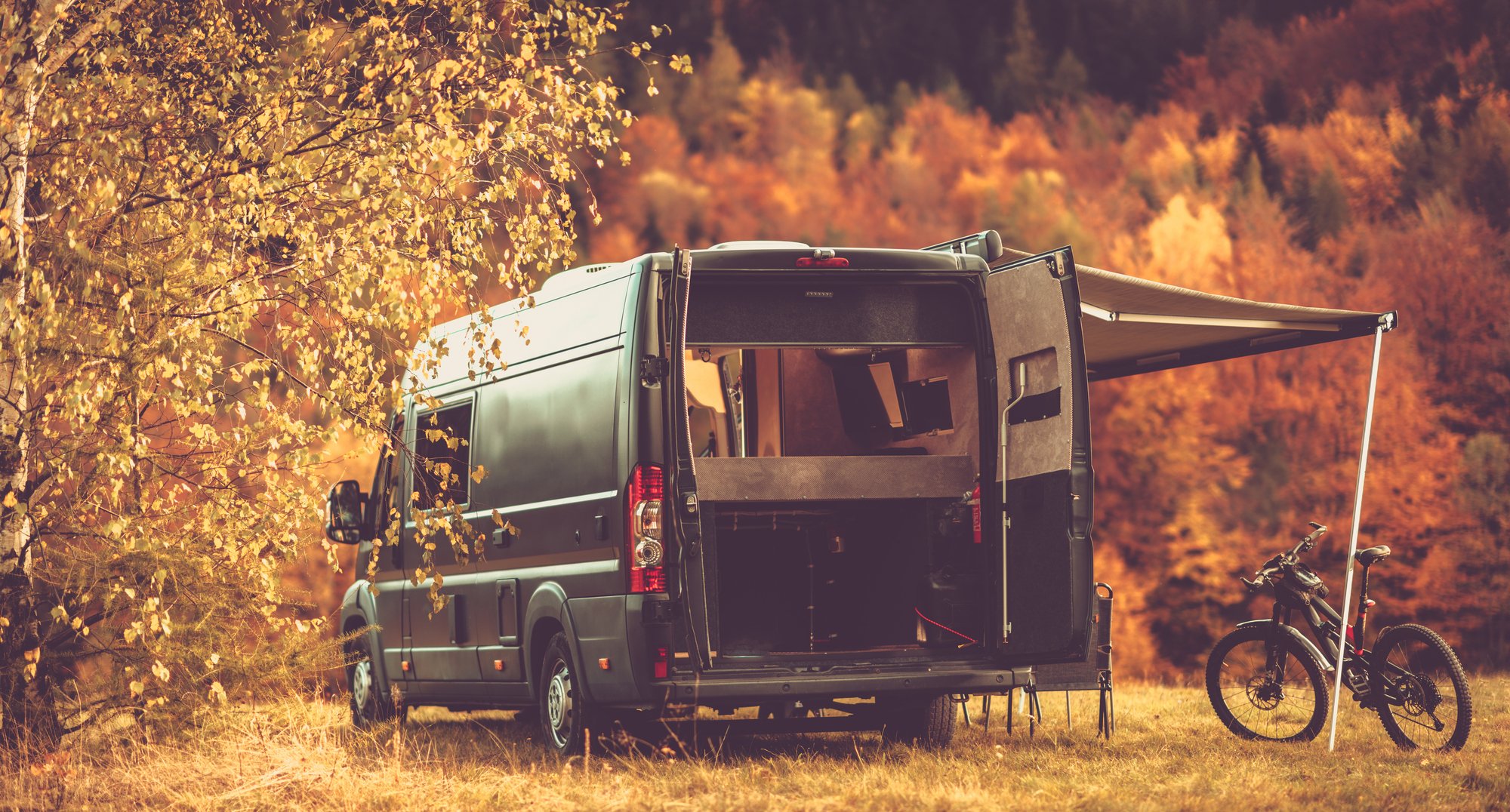Boondocking is a unique lifestyle choice which offers great ways to save money on camping expenses. But how do you power all your devices in a remote location? With a portable generator from Generator Mart!
Devices such as heaters, ACs, phones, and kitchen appliances all require electrical power to operate. The most effective way to provide this power supply is through a portable generator. This article will discuss how to camp off grind, things to consider when doing so, and how these topics can impact your choice on a reliable portable generator purchase.
Power Generation And Boondocking
Boondocking (dry camping) is the practice of camping anywhere in the world outside established camping facilities. This type of experience is commonly done in the wild, at dispersed camping locations, or in parking lots.
Dry camping is a popular endeavor amongst outdoor enthusiasts. Boondocking is a great way to avoid camping fees and in some cases, is a life style choice by a niche group of people. These life style folks can boondock off the grid for several months or even several years relying primarily on what their travel trailer or RV has to offer. In such scenarios, owning a reliable portable generator from Generator Mart will help increase these boondocker’s experience.
Batteries, Panels, Portable Generators
When you find yourself boondocking for several consecutive days, the need for portable power is going to become very apparent. There are two solutions available in the marketplace for portable power – solar panels and portable generators. When comparing these two options, the following points are most noteworthy:
- Solar panels that produce wattages comparable to portable generators (2kW – 15kW) are very large and rarely fit on most RVs.
- Without direct sunlight solar panels do not work well.
- Solar panels are very expensive and require housing large batteries on your rig in order to store the energy.
It is clear portable generators offer a more simple and effective solution toward portable power over solar panels. When it comes to practicality and versatility, portable generators reign supreme.
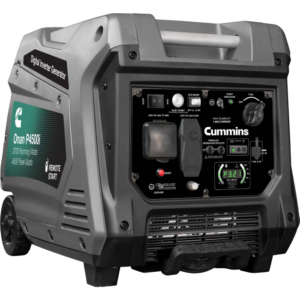
The Portable Generator Playbook For Boondocking
Now that you understand the basics of boondocking and how portable generators are the most effective mobile power solution, how do you choose the best one? This answer depends on your unique circumstances. The content below will break down the most important topics when selecting a portable generator so you’ll better understand which option is best for your situation.
Portable Inverter Generator Or Not?
In general, inverter generators are more expensive and less powerful, however, they provide a clean sinewave which is a great way to power delicate electronics such as laptops and phones. Plus inverter generators have a lower sound decibel rating than non-inverter generators – this means they are quieter.
Wattage / AMPS
Your power requirements, which comes down to wattage and amps, are the key factors when deciding which portable generator you’ll buy. If you need help understand how much power you need, use our free wattage calculator. Generator Mart recommends picking a generator whose power covers your wattage requirements at 50-75% load. You should never overload your portable generator and in general you shouldn’t underload your generator as well – find the sweet spot.
Noise
When you are boondocking in various locations like parking lots, forests, or dispersed camping sites, you want to ensure the noise level your portable generator is producing isn’t too loud. Your neighbors – humans or animals – will dislike a 100 dB generator’s sound levels. From our experience we recommend picking a portable generator below 70 dB.
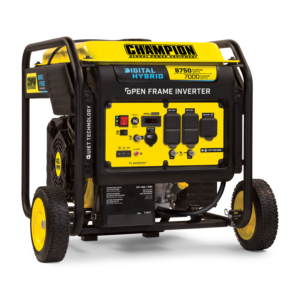
Runtime
Runtimes do vary across brands but in general you want the portable generator running through your 8-hour sleep cycle and most generators we sell will do this. Please note the load at which the runtime is listed. A generator’s run time will vary depending on if it’s operating at 50% load vs. 75% load. The larger the load the faster your fuel will burn.
Space
Standby and portable generator sizes scale in accordance to the power they produce. However, similar power brands can vary in size quite drastically. This is because classic generators are often much larger than inverter generators. Be sure to double check the portable generators dimensions when deciding on a space to store the generator.
Weather
A portable generator must NEVER be used inside your vehicle due to the harmful emissions expelled into the air. Thus you may want to think about investing in materials that protect your generator from the elements when operating outside.
Security
Portable generators can be an easy target for local thieves around your camping site. We recommend installing a locking mechanism on your portable generator to ensure someone cannot walk off with your asset when you’re not around.
Final Words
In summary, portable generators are the best choice for reliable power for boondocks. They are easily transportable, functional, and reliable. When selecting your portable generator, you must decide if you want an inverter generator, then calculate your wattage and amps, forecast runtimes, and aim to keep the dB rating 70 or lower.
Additionally, ensure your portable generator’s dimensions are adequate for the dedicated space, prepare yourself for inclement weather, and mitigate any theft which may happen.
RELATED POSTS
Proin auctor nibh vitae urna lobortis, in vulputate erat facilisis. Sed lacinia lorem eget orci finibus, et maximus nisi sagittis.
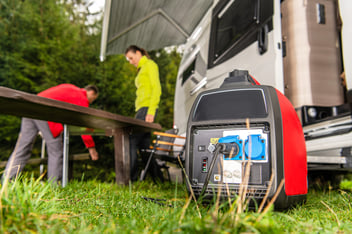
How to Select the Best Portable Generator for Your RV
RV and camping season is just around the corner. Outdoor adventure’s with friends and family brings a need to have reliable power in the form of a...
Read more »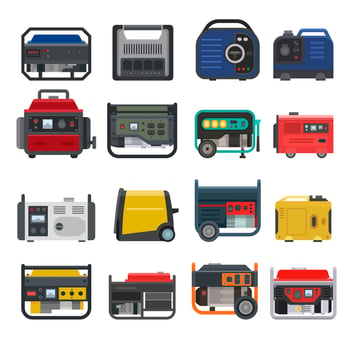
Consumer Generator Basics – Home Standby & Portable Generators
The two questions of “what kind of generator do I need” and “how big of a generator do I need” are the most common areas of concern for people...
Read more »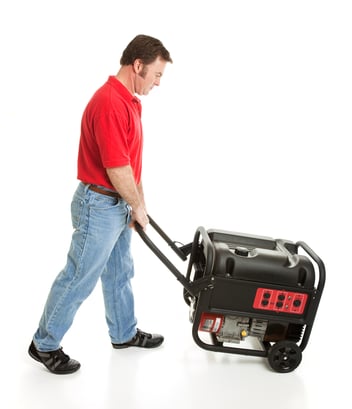
Introduction to portable inverter generators
What is an inverter generator?
An inverter generator is different from a conventional generator because it uses an inverter (hence the name) to turn...
Read more »
